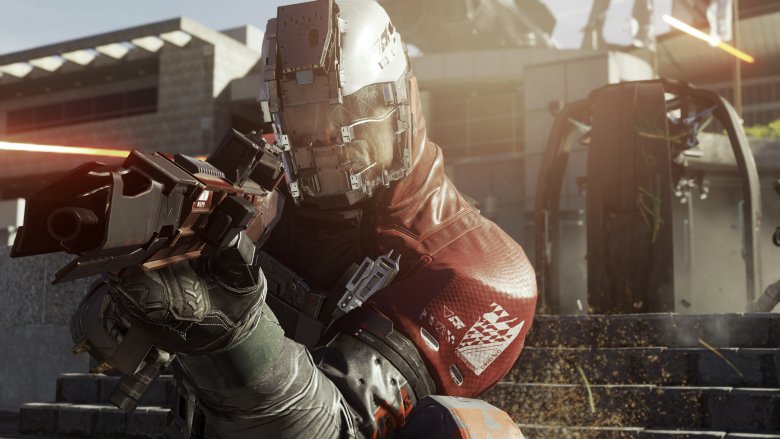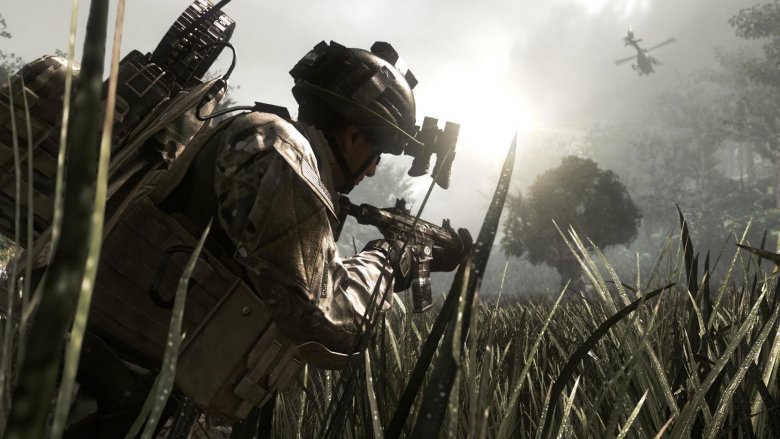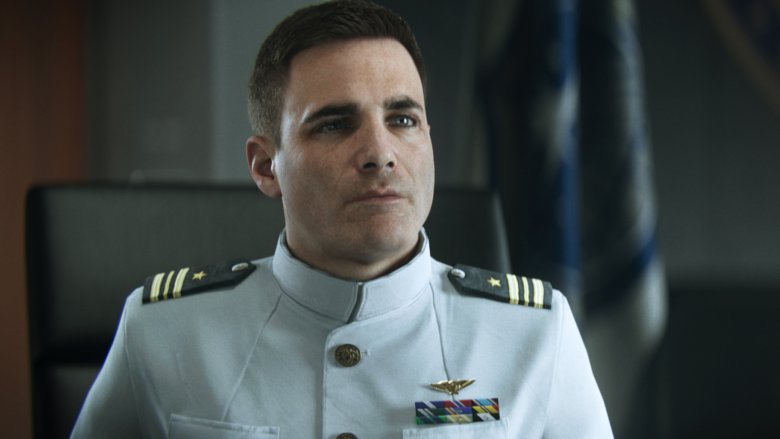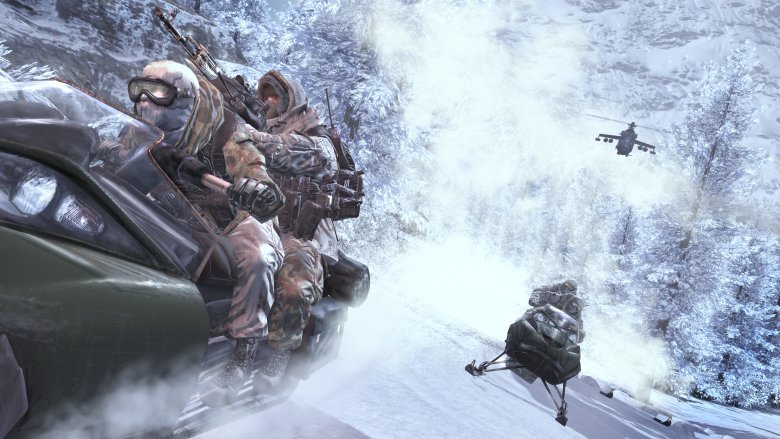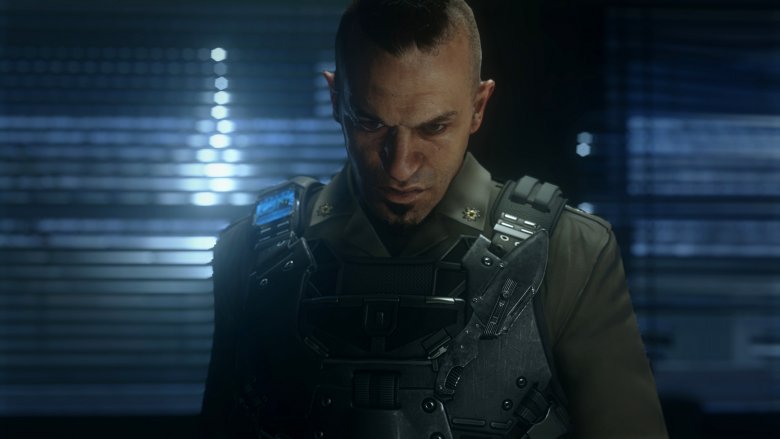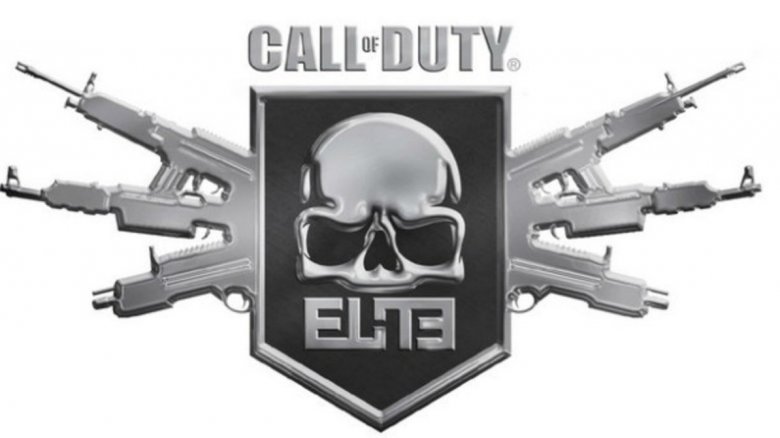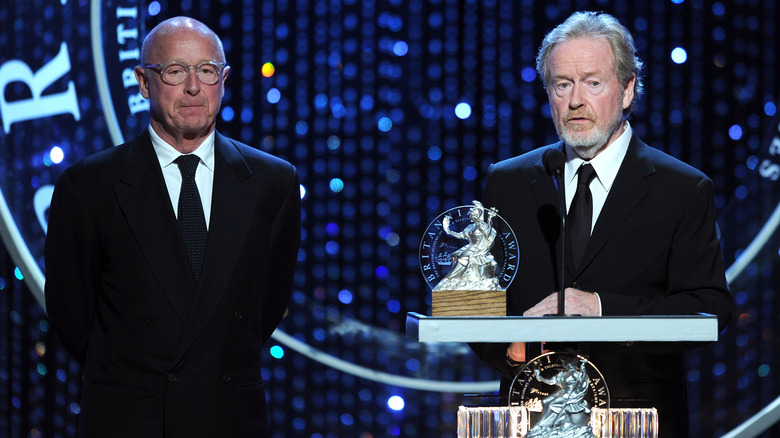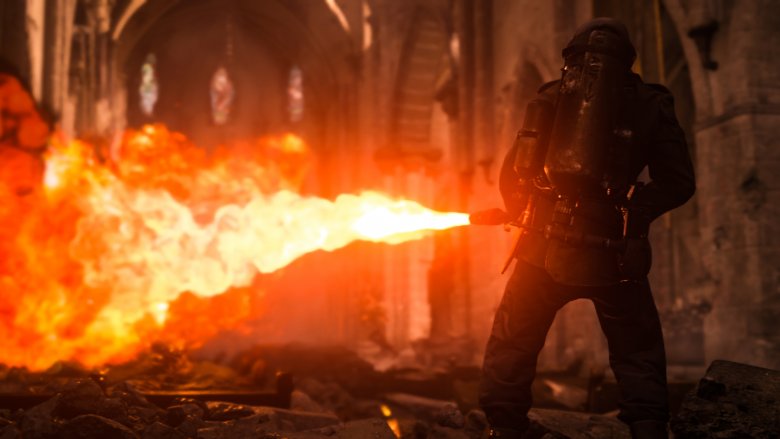The Biggest Call Of Duty Fails Ever
When it comes to the business of video games, Call of Duty is in a category unto itself. While the original World War II game was successful in its own right, the series launched into the stratosphere with a massively successful jump to other eras beginning with 2007's Call of Duty 4: Modern Warfare. From there, the franchise has gone from triumph to triumph, earning more money than even Star Wars and Harry Potter films.
But after 15 years, those successes haven't come along without a few visits from their ugly cousins, the failures. And yes, even the 800-pound gorilla of FPS has had some stumbles. Some of these were largely kept out of the public eye; others remain all-too-well-remembered. What they do point to, however, is a willingness to experiment and innovate that the franchise is often criticized for lacking. Turns out Activision actually does try out new ideas. They just usually throw them out and go back to what works. And then profit.
These, then, are the biggest failures in Call of Duty history, which helped shape the modern form of the franchise as much as its successes.
Call of Duty: Ghosts proves that a studio needs more than just a name
Infinity Ward is the name of the developer that created Call of Duty in the first place, going all the way back to the 2003 original. The company went on to redefine the FPS marketplace with their propulsive Modern Warfare subseries, which brought a contemporary aesthetic and RPG-inspired leveling systems into the genre. So when they announced that they would be leaving their beloved subseries behind in favor of a brand-new title, expectations were sky-high. How could Infinity Ward possibly exceed their earlier landmarks?
In a word, they couldn't. 2013's Call of Duty: Ghosts told an incoherent story about betrayal in a war between America and, well, the rest of the Americas. The presence of a lovable dog companion couldn't salvage its weak script and recycled mission design. Only six years after blowing minds with the astonishing Call of Duty 4 campaign, Infinity Ward delivered a flop.
Things didn't look much better on the multiplayer side: while it was still the fast-paced adrenaline-rush experience that earlier games delivered, there wasn't much new. Polygon said that the game "demonstrates an unwillingness to change much and presents a real shortage of new ideas." All around, Ghosts was just a bust. Where other Call of Duty games would typically get their own subseries, this title was instead retired and never touched again.
Poor multiplayer leads to bad sales IN SPACE
Infinity Ward rallied after the failure of Ghosts — which, as a Call of Duty game, still managed to make a huge amount of money. Realizing that the weak story had hurt the game's reputation, the studio hired a new narrative director in Taylor Kurosaki, a Naughty Dog veteran. Kurosaki wanted to re-energize the campaign in the next offering, which he explicitly wanted to turn into a new subseries. The result was 2016's Infinite Warfare, which not only brought the action into space, but indeed featured a compelling story about the nature of sacrifice.
Good stuff! But the game failed anyway.
Sadly, Infinity Ward's faith in campaigns turned out to be misplaced — or at least overvalued versus the importance of multiplayer. Call of Duty reigns supreme due to its fast-paced competitive mode, not great characters. And Infinite Warfare, sadly, just didn't have very good multiplayer. Involving a number of wall-running sections and maps too open to stay safe in, the game was too different from past titles, and too chaotic to ever be truly mastered.
Infinity Ward was hit by another disappointing response from fans, who shied away from the game in a big way. The odds of an Infinite Warfare subseries are looking pretty grim now, which is a shame.
Getting fired for making the biggest game ever
If you're wondering how Infinity Ward could go from making the biggest games on the planet to making, well, slightly-less-big-but-still-enormous games, the answer is really pretty simple. It's the biggest fail in the history of the series, and one of the most infamous in industry history: Activision's firing of Jason West and Vince Zampella. Vanity Fair has a good recap of the whole story, but in brief, West and Zampella — the original founders of Infinity Ward — wanted more creative control over the Call of Duty franchise. They got Activision to sign a contract to that effect.
But there was a loophole: if they ever got fired, the rights would revert back to Activision. Guess how that turned out?
The duo was fired by a particularly aggressive Activision, which accused them of intentionally trying to sabotage non-Infinity Ward Call of Duty games (such as Treyarch's new Black Ops subseries). Though the pair sued for wrongful termination and unpaid royalties, and eventually won a settlement, the larger point is that West and Zampella were torn away from their own franchise.
Infinity Ward has never been the same since (a large number of employees quit and followed the pair into their new venture, Respawn Entertainment). Call of Duty, however, just keeps on chugging along. With Black Ops as its new standard bearer.
Call of Duty XP is a bust
In 2008, Activision merged with Vivendi to bring together two of gaming's biggest publishers: Activision itself and Vivendi's crown jewel, Blizzard Entertainment. The new venture, called Activision Blizzard, has gone on to become an industry behemoth. All that said, the Activision and Blizzard halves are more or less distinct entities that share an umbrella leadership.
On its own, Blizzard has run a convention called BlizzCon, in which the company celebrates its lineup of games and the fandom surrounding them. So it made sense that their Activision counterparts would want to do the same thing, especially for their biggest franchise, Call of Duty. The result was Call of Duty XP in 2011, an event at which fans could play a build of the upcoming game, run around in a paintball arena version of a popular map, and watch a $1 million tournament. Sounds fun!
Or maybe not. The XP event didn't seem to generate much buzz, and the following year, no new event materialized. Activision did try again in 2016, and again, there was no follow-up. Simply put, it seems that the Call of Duty series just doesn't generate the kind of fandom that translates well into a convention setting. Where BlizzCon worked, CoD XP didn't.
The third-person Call of Duty never came to be
Call of Duty games are often criticized for being clones of one another. A new game, you say? Oh look! It has a short, heavily-scripted campaign; a multiplayer mode with classes, perks, and killstreaks; and some zombies for some reason. Somewhat like sports video games, the annual release of a Call of Duty is less of an event and more of an update. At full price.
But once upon a time, Activision looked to rock the boat a bit. Specifically, they tasked developer Sledgehammer Games with creating a third-person title. As detailed in Game Informer (via GameRant), Sledgehammer intended to take the action into the Vietnam War — but not into Vietnam. The studio explored the largely-ignored setting of Cambodia in this time period, where Americans are believed to have fought in an unofficial (and possibly illegal) capacity. The gameplay itself would feature Dead Space-inspired horror elements, as US troops navigated enemy-built tunnel systems with dread.
So then: third-person perspective, controversial setting, and horror elements. Who says Call of Duty can't be different? Well, Activision, apparently: the publisher canceled the project so Sledgehammer could go make Advanced Warfare, which featured a short, heavily-scripted campaign, a multiplayer mode with classes, perks, and ... you know.
While these safer titles have done very well, they also signaled the end for a more creative direction. What a fail.
The Call of Duty: Elite service flatlined
Game publishers are desperate to find revenue streams outside of the typical $60 purchase price. First came downloadable content, yours for around $15; then subscription services, for about the same price every month; and these days it's all about microtransactions, including loot boxes. Well, Call of Duty is no different. It's had DLC for years in the form of map packs, and microtransactions in the form of Supply Drops. So why hasn't Activision gone for the trifecta and introduced subscription fees as well?
You might not remember, but actually, they did.
Call of Duty: Elite was a premium service that required, yes, a subscription fee to access. What did CoD: Elite actually do? Well ... that's a great question, which Activision never answered very well. In seriousness, the premium tier was meant to provide monthly DLC and a year-round competition, plus "Call of Duty Elite TV." Whatever that is.
Well, nobody actually bought this pitch, and the service was shut down altogether in February of 2013. Activision tried to copy Blizzard's World of Warcraft success, but failed.
They got a major Hollywood director to adapt the series – and then didn't
So just what was that "Call of Duty TV" supposed to be? It never materialized, but apparently, plans called for a webseries produced by none other than legendary directors Ridley and Tony Scott. While the two brothers each have a filmography a mile long, their combined military movie credits include Top Gun, G.I. Jane, and Black Hawk Down. Now that's some serious firepower.
Except it never arrived. It's not unusual in Hollywood for a project to attract some big names and then quietly fade out of existence. But apparently, Activision wasn't used to how Hollywood works, since they announced Call of Duty TV as one of the subscription Elite service's perks before the series was ever filmed. So if anybody purchased a subscription for some Scott brothers action, they were ripped off.
All in all, the death of this project was a big loss for Activision. Call of Duty is an enormous franchise, and the Scott brothers seemed perfect to adapt them into linear media. We don't know the story behind the collapse of the webseries, but it does seem like the publisher got the short end of the stick, whether or not it was their fault.
Mainstream escapist entertainment goes to the Holocaust -- or doesn't, actually
Call of Duty began in World War II. At at time when history's most destructive conflict owned the shooter genre, the first few CoD games stood out for their intensity, their authenticity, and their multinational scope. Of course, eventually the games industry ran World War II into the ground, and Call of Duty led the charge into the modern era (and beyond) starting with Call of Duty 4. The Second World War was done.
And then it wasn't! 2017's Call of Duty: WWII sent the series back to the 1940s, telling the story of a single American squad as they marched through Europe. It was a thrilling return to the franchise's roots, and the title received praise all around for its presentation of the conflict.
Except for one specific area, which wasn't even part of the war itself: the worst part of the worst part of human history, the Holocaust. Earlier games in the series — and indeed, pretty much all other World War II games — simply avoided the topic altogether. This does make sense: these games are supposed to be fun, and genocide sure doesn't fit inside of escapism. Still, if you are going to reference the Holocaust, it should be treated with the gravitas, and tragedy, that it deserves. Sadly, CoD: WWII tried to split the difference by mentioned the concentration camps for a second ... and then just moving on. The game took its fair share of criticism for that.
Ecce Call of Duty
Call of Duty has been to a few eras now. World War II was its beginning, which it returned to in 2017. Modern Warfare was, well, modern, while Advanced Warfare took us to the near future and Infinite Warfare took us into space. But how far in time do you have to go before the brand just breaks down?
Ancient Rome, apparently.
Once upon a time, there was an actual, real internal pitch at Activision to make a Roman Call of Duty, as GamesRadar shows in a video. The idea would have put players in the shoes — or sandals — of a legionnaire in Julius Caesar's fabled Tenth Legion during the time of the Gallic Campaign. It would also have shifted the series to a third-person perspective, to fit with its hack-and-slash game style.
But at the end of the day, Call of Duty is a military brand. And while the Romans certainly had a military, their ancient setting, gear, and tone were just too different for Activision's taste. Perhaps if the game had been pitched as a brand-new IP, it might have gotten some traction. But as a CoD game, it just failed.
Call of Duty couldn't make the jump into cards
As a medium, video games allowed for playstyles that were impossible beforehand. A player could fly into space, or storm Normandy for fun, or even maneuver shapes around in Tetris. And yet, for all that, good old-fashioned cards remain as popular as ever. Blizzard turned Warcraft into Hearthstone, and CD Projekt Red turned The Witcher into Gwent. Meanwhile, Magic: The Gathering remains an enduring pastime for millions of players the world over.
So maybe it's not a surprise that, in its quest for global domination, even Call of Duty once considered turning itself into little rectangles that fit in your hand. And not a digital recreation, either: an actual, physical card game that you would be able to play on a table with your friends. The design appeared to want to track the video games as closely as possible, featuring distinct modes such as deathmatch and capture the flag. More importantly, and radically, this was a real-time card game! No nice turns here: just like in the video game, you'd have to move faster than your opponent to win. Who knew twitch reactions worked with cards?
Alas, something went wrong somewhere. The game was apparently ready to release in late 2008, and yet never did. Did Activision get cold feet? Was there an issue in the licensing contract? Or could it be that the game just wasn't very good? We may never know.

